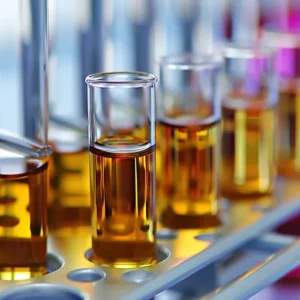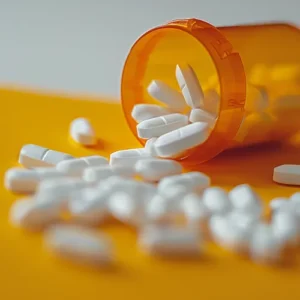What are Opiates?
Opiates are narcotic analgesics that act as central nervous system depressants. They are generally divided into two types – natural and synthetic. A natural opiate is one that has been made from the milky fluid of the poppy. This liquid is air-dried to produce what we know as opium. Synthetic opiates are man-made drugs that have a comparable chemical make up to natural opiates but are manufactured in industrial laboratories. The collective term for both natural and synthetic opiates is opioids. Heroin is the most commonly used opioid.
How Do Opioids Work?
Opioids connect with proteins in the brain, gastrointestinal tract and spinal cord, which we call opioid receptors, Different opioid drugs will attach to different receptors to stop pain messages getting to the brain. These drugs can also relieve stress and make users feel drowsy or content. This is because they induce euphoria in the parts of the brain that mediate pleasure, Other effects can include reduced heart rate, constipation, widened blood vessels and depressed coughing and breathing.
What Are Opiate / Opioid Painkillers?
Opioid painkillers include buprenorphine, codeine, dihydrocodeine, morphine and diamorphine (more commonly known as heroin). A lot of these drugs are only available on prescription from a doctor. Some are found in over-the-counter medicines in low doses, normally mixed with paracetamol, ibuprofen or aspirin.
Although opioid painkillers are generally safe to take, some people can become dependent on them and they are highly addictive. When they are used mainly to get high or to feel better, the chances of addiction will be much higher.
Are Opiate / Opioid Painkillers Addictive?
Yes, painkillers of this type are addictive and can cause ‘cravings’ and an emotional need to keep on using them. There is also a risk of tolerance developing with continued use. Users need to take more of the drugs to get the same effect and to avoid the pain of withdrawal.
Opioid Painkillers and the Law
Opioid painkillers of high strength are only available on a doctor’s prescription. The Misuse of Drugs Act classifies them as Class A or B drugs. This means that possession or distribution of opiates that have not been prescribed to you is illegal.
Getting Help for Addiction
If you believe you may be addicted to opioid painkillers, it is important to seek help. Your GP can refer you to drug addiction services and prescribe medications to help ease withdrawal symptoms. There are also many organisations that provide counselling and support groups to help people recover from addiction.
Some options for support include:
- Local drug and alcohol services – offered by the NHS or charities
- Residential rehab clinics – intensive support and supervision
- Peer support groups like Narcotics Anonymous
Relapse Prevention
Recovering from opioid addiction is a long-term process. Even after completing a treatment programme, many people experience relapses. Identifying triggers and developing healthy coping strategies can help reduce the risk of relapse. Strategies include:
- Avoiding people, places associated with drug use
- Managing stress and difficult emotions in healthy ways
- Having emergency numbers/support on hand when cravings hit
The Opioid Epidemic
The addiction and overdose potential of potent opioid pain medications has contributed to an epidemic across the UK and worldwide. From 2019 to 2020 alone, there was a 16.4% increase in opioid poisoning deaths in England and Wales. Public health approaches to prevent abuse while still helping those with chronic pain are urgently needed. Harm reduction, increased access to addiction services, and responsible prescribing must be part of a comprehensive strategy to end this crisis.
Photo Credit: Samuel John on Flickr
Zoom Testing is a leading UK drug testing company and a supplier of Drug Test Kits.





